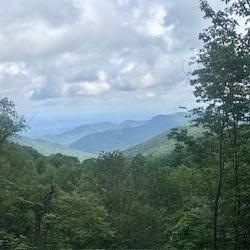Religion and Politics
In the World Religions class I teach, I have the students look at the dynamics and relationship between religion and politics at the end of the semester. The last few classes, I have had the students address the question, does religion cause violence? This semester however, I asked a different question, “what role does religion play in politics?”
Consider this thought from Christopher Calloway (Calloway):
While the topic of establishment (Under the notion of separation of church and state has receded in importance at present, it has been central to political thought in the West since at least the days of Constantine. In the wake of the Protestant Reformation, European societies wrestled with determining exactly what roles church and state should play in each other’s sphere, and so the topic of establishment became especially pressing in the early modern era, although there was also substantial discussion in the Middle Ages (Dante, 1995). The term “establishment” can refer to any of several possible arrangements for a religion in a society’s political life.
“Though the United States was not founded as a Christian nation, Christianity was always intertwined with America’s self-definition. Without it, Americans—conservatives and liberals alike—no longer have a common culture upon which to fall back” (Hamid, 2021). For churches today, there is a fear, a palpable fear of eternal damnation and being separated from loved ones upon death. Furthermore, fear of being alone from one who created them is another driving fear that pushes one into the strict adherences we often hear about in the right-wing Christian circles.
Translations
A strict literalist translation of the bible along with strict adherences to right theological doctrine in many circles is what makes one a “good” Christian or in other circles, Muslim, Buddhist, or Hindi. Interestingly, there are pockets of right wing Evangelical BIPOC members and members of the LGBTQ+ community. Fear, once it takes over one’s emotions, makes one vulnerable to suggestion. Fear will make one grasp any answer that seems safe. “Our jobs are in jeopardy,” “our taxes are too high,” “they are coming for our guns” or “those people are going to corrupt our traditions, our children, our communities” are all lines fed to us to bolster our fears. Changes happen during a society’s existence and these changes allow for growth, maturity, and learning.
Hamid further offers:
adherents of a Trump-centric ethno-nationalism still drape themselves in some of the trappings of organized religion, but the result is a movement that often looks like a tent revival stripped of Christian witness. Donald Trump’s boisterous rallies were more focused on blood and soil than on the son of God. Trump himself played both savior and martyr, and it is easy to marvel at the hold that a man so imperfect can have on his soldiers. Many on the right find solace in conspiracy cults, such as QAnon, that tell a religious story of earthly corruption redeemed by a godlike force (Hamid, 2021).
Once Christianity became part of the Roman Empire, what would eventually develop was a religion about Jesus rather than a religion of Jesus. The notion of make America Great Again is not one that is new to our American landscape nor is the idea of Making Christianity Great again new to the Christian landscape. Ever since that first power grab in CE 380, people in power have been striving to maintain equilibrium. Inherently religion does not cause violence. When religion though gets co opted by state governments or political systems, then we end up with a problem.
Nationalism is not Christian?
Let us look at the notion of nationalism. In an article by Noreen Herzfeld, she asks the question, “What are the consequences of the politicization of religious myths and symbols for religious communities?” (Herzfeld, 2019). Roger Friedland offers this observation, “All religious nationalisms are forms of politicized religion, but not all politicized religions are religious nationalisms. Religious nationalisms are a particular form of politicized religion, that is religious movements that engage in political projects that make the state not only a medium, but an object, of collective action” (Friedland, 2011).
“Religious nationalism, or the fusion of religious and national identities and goals, is both neglected and powerful. It is neglected because the literature on nationalism has tended to dismiss it, viewing it either as an anachronism or an exception. Instead, these analyses focused on the creation of “imagined communities” through homogenizing effects of “high culture,” to notions of “invented tradition” and “ethno-symbolism” that help to create powerful and durable “idioms of nationhood” (Gryzmala-Busse, 2019).
What does it mean to be American? What does it mean to be a Christian in America or what does it mean to be Muslim in America? Is a Muslim in America an American? Hamid offers that in Germany for example, if one from some other country immigrates there, they are not German, they are an American who lives in Germany. I am not sure I agree with this thought, but it was a point made there. I am proud of my American heritage; however, I am at times embarrassed by the actions of many Americans over the last several hundred years and the state the Christian Church has become as it has colluded with the state.
Jesus Christ, Justice Warrior
The founder of Methodism had a saying, “Do all the good you can, in the all the ways you can, as long as you ever can.” I think the Buddhists have the best statement of being, “live in such a way as to reduce the suffering of all sentient beings.” Peace and justice issues are part of the fabric of my being. I grew up with the Benedictine sisters in my hometown, went to college to be a social worker, did a lot of peace and justice work while in college and now am an outpatient therapist.
Peace and justice issues were at the heart of what Jesus was credited to have preached about. He would call out the socio-political-religious hypocrisies of the religious elite and the politicians of his time. His emphasis was always a preferential option for the poor as the Catholics are known to speak about. Churches only do missions because it is what they are supposed to do as part of the mission of the church. I have been in lengthy meetings on how churches were going to budget for mission.
A Thoughtful Response to the 2024 Elections
Christians who follow the faith of Jesus have an ethical and moral responsibility to elect leaders who honor not the religion of Jesus. Leaders who put their interests or the interests of their business colleagues and friends over the interests of reducing suffering are not honoring the religion of Jesus. These leaders are honoring the religion created by Constantine about Jesus. Which version of Christianity do you honor?
Works Cited:
Calloway, C. (n.d.). Religion and Politics. Internet Encyclopedia of Philosophy. Retrieved July 25, 2023, from https://iep.utm.edu/rel-poli/
Friedland, R. (2011). The Institutional Logic of Religious Nationalism: Sex, Violence and the Ends of History. Politics, Religion & Ideology, 12(1), 65–88. https://doi.org/10.1080/21567689.2011.564403
https://search.ebscohost.com/login.aspx?direct=true&db=afh&AN=94381331&site=ehost-live
Gryzmala-Busse, A. (2019, March 26). Religious Nationalism and Religious Influence. Oxford Research Encyclopedia: Politics. Retrieved November 25, 2023, from https://oxfordre.com/politics/display/10.1093/acrefore/9780190228637.001.0001/acrefore-9780190228637-e-813
Hamid, S. America Without God. The Atlantic. https://www.theatlantic.com/magazine/archive/2021/04/america-politics- religion/618072/












